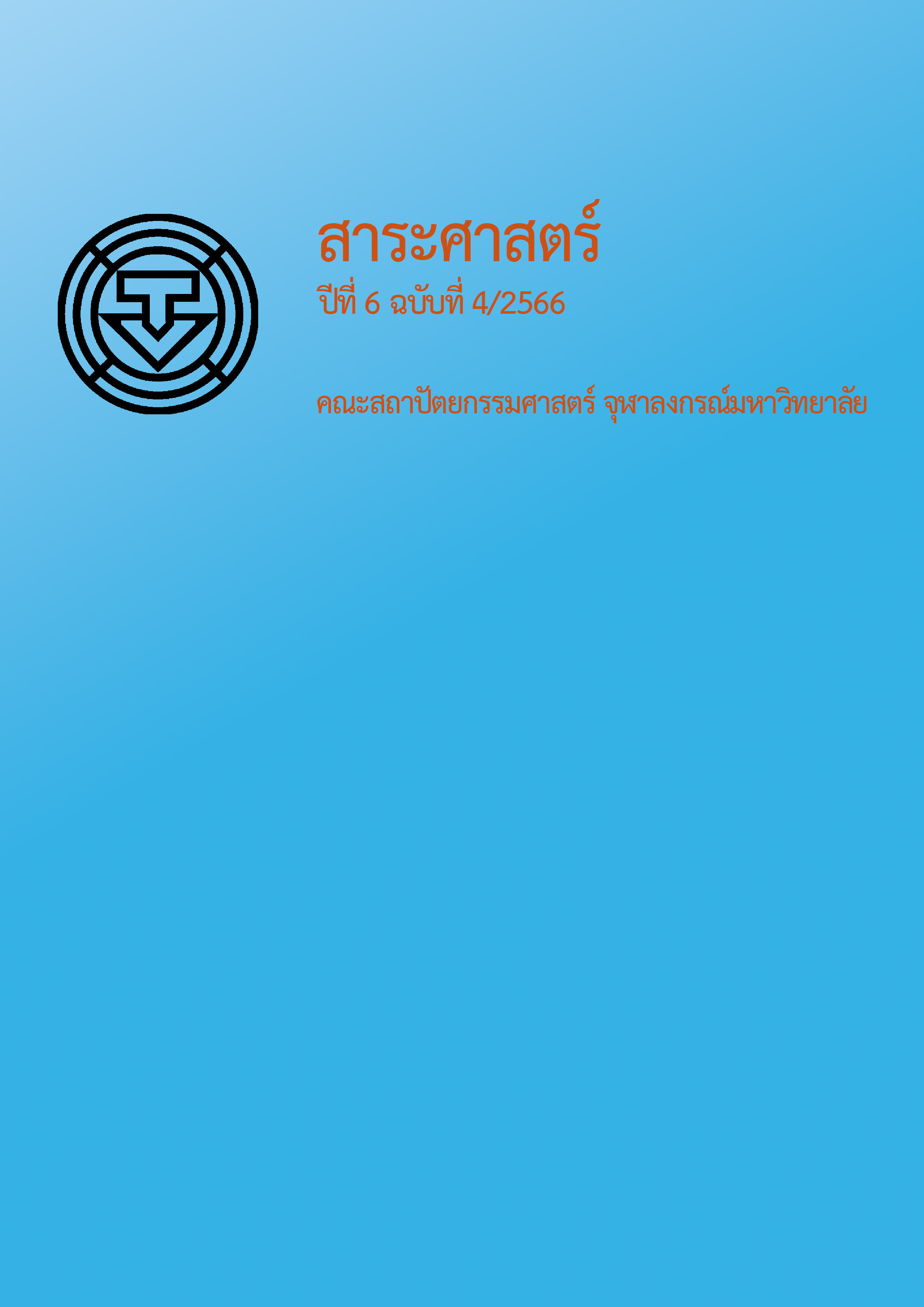Management of Solid Waste from Condominiums in Bangkok: From Waste to Fuel
Main Article Content
Abstract
The problem of solid waste is an important problem that draws much recent attention from academia and policy makers. The problem is caused by excessive production and consumption, inefficient waste management, and changes in consumer behaviors. Bangkok is the city with the highest amount of solid waste generated per day in Thailand. The average amount of solid waste generated per person is higher than other provinces in Thailand and the amount is increasing every year. The waste is generated primarily from the household sector, especially high - density residential places like condominiums. Nonetheless, not much is known about the waste management of such high - density residential locations.
The objectives of this research are: 1) to study the process of waste management from condominiums in Bangkok, 2) to study the problems, obstacles, and elimination that lead to waste from condominiums into Raw Materials to Waste to Fuel, and 3) to propose solid waste management guidelines from condominiums in Bangkok to Waste to Fuel. The analysis employs the qualitative research method under the concept of zero waste management. There are semi - structured in - depth interviews with stakeholders. Six samples from government, private and public sectors by specific sampling method and the tools used in the interview were open - ended questions designed for stakeholders.
The results of the study revealed that the current waste management process from condominiums in Bangkok area focuses on 1) upstream waste management, 2) in transit waste management, and 3) downstream waste management. The management of the waste at the source gain the least important, which is different from the concept of waste management to zero waste according to the 5Rs principle that emphasizes the management of waste from the source as much as possible to encourages minimal landfilling. In particular, the promotion of downstream waste separation should be promoted using technology and innovation to enhance the conversion of waste to energy and minimize waste.
Article Details
References
กรมควบคุมมลพิษ. (2552). แนวทางและข้อกำหนดเบื้องต้น การลดและใช้ประโยชน์ขยะมูลฝอย (พิมพ์ครั้งที่ 3). สำนักจัดการ กากของเสียและสารอันตราย กรมควบคุมมลพิษ กระทรวงทรัพยากรธรรมชาติและสิ่งแวดล้อม.
กรมควบคุมมลพิษ. (2553). คู่มือประชาชนการคัดแยกขยะมูลฝอยอย่างถูกวิธีและเพิ่มมูลค่า. สำนักจัดการกากของเสียและสารอันตราย กรมควบคุมมลพิษกระทรวงทรัพยากรธรรมชาติและสิ่งแวดล้อม.
กรมควบคุมมลพิษ. (2565). ข้อเสนอการยกระดับสถานที่กำจัดขยะมูลฝอยที่ไม่ถูกต้อง. กองจัดการกากของเสียและสารอันตราย กรมควบคุมมลพิษ.
กรมส่งเสริมคุณภาพสิ่งแวดล้อม. (2559). คู่มือการสร้างวินัยสู่การจัดการขยะที่ยั่งยืนสำหรับเยาวชน. กระทรวงทรัพยากรธรรมชาติและสิ่งแวดล้อม.
กรุงเทพมหานคร. สำนักยุทธศาสตร์และประเมินผล. (2552). แผนพัฒนากรุงเทพมหานคร ระยะ 12 ปี (พ.ศ. 2552 - 2563) กรุงเทพฯ มหานครแห่งความน่าอยู่อย่างยั่งยืน. สำนัก.
กองจัดการกากของเสียและสารอันตราย. (2565). แผนปฏิบัติการด้านการจัดการขยะของประเทศ (พ.ศ. 2565 - 2570). กอง.
จุรีรัตน์ ใจพิศ. (2555). การจัดการขยะเหลือศูนย์. วารสารเทคโนโลยีภาคใต้, 5(2), 26 - 41.
บุญชนิต ว่องประพิณกุล และสุจิตรา วาสนาดำรงดี. (2564). “ขยะพลาสติกจากการสั่งอาหารออนไลน์” สถานการณ์ปัญหาและแนวทางแก้ไข (ตอนที่ 1). วารสารสิ่งแวดล้อม, 25(1), 1 - 10.
พิชา รักรอด. (2563). จัดการปัญหาก่อนลงถังด้วยหลัก 7R ทางเลือกเพื่อหลีกเลี่ยงมลพิษพลาสติกหลังวิกฤตโควิด-19. Greenpeace Thailand.
Curren, T., & Williams, I. D. (2012). A zero-waste vision for industrial networks in Europe. Journal of Hazardous Materials, 3(7), 207 - 208.
Durham Region. (2013). Community communication plan: Energy from waste. Durham York Energy Centre.
Holman, R. (2017). No time to waste, waste diversion in construction. The USGBC West MI Chapter.
Mauch, C. (2016). A future without waste? Zero waste in theory and practice. Rachel Carson Center.
Zaman, A., & Lehmann, S. (2011). Challenges and opportunities in transforming a city into a "zero waste city". Journal Challenges, 2(4), 73 - 93.
Zero Waste USA. (2004). GRRN zero waste business principles. https://archive.grrn.org/zerowaste/business/index.php


